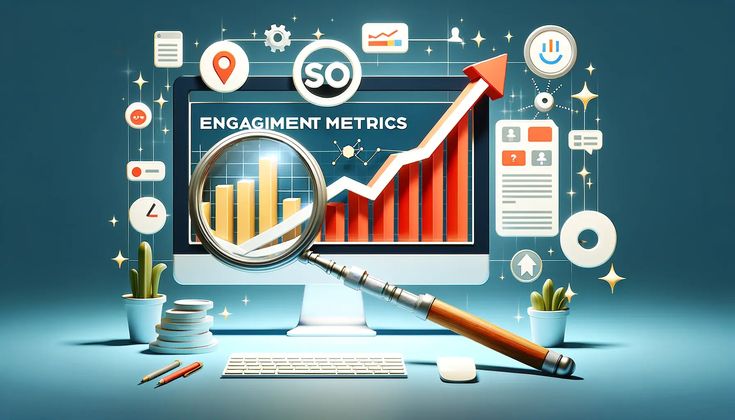As the app market continues to grow exponentially, marketers are constantly refining their strategies to stay competitive. With millions of apps available on both the Apple App Store and Google Play Store, standing out and driving installs has never been more challenging. However, with the right strategies in place, it is possible to cut through the noise and gain visibility, attract users, and build a loyal customer base. This article outlines proven app marketing strategies for 2025 that will help you achieve these goals and grow your app’s user base.
1. App Store Optimization (ASO) is More Critical than Ever
App Store Optimization (ASO) has always been a cornerstone of app marketing, but as app stores evolve, so too must your approach to ASO. In 2025, successful ASO requires a deep understanding of algorithmic changes, user behavior, and competition. Here’s how to get it right:
Key ASO Tactics:
- Keyword Optimization: Use both short-tail and long-tail keywords relevant to your app. Focus on search terms that reflect user intent, such as functional features or specific solutions your app provides.
- App Title and Description: Make sure your app’s title is clear, concise, and includes primary keywords. Write an engaging, informative app description that highlights your app’s unique features and value proposition.
- Visual Assets: Screenshots and videos are incredibly important in influencing a user’s decision to install. High-quality visuals should highlight the app’s functionality and showcase real-life use cases. Adding captions or annotations to videos can further enhance engagement.
- User Reviews and Ratings: User-generated content in the form of reviews can greatly impact your app’s visibility. Encourage users to leave reviews and address any negative feedback promptly. Implementing a robust system for managing reviews will keep your ratings high and improve your ASO.
ASO is a continuous process—regular updates, split testing, and keeping an eye on your competitors’ strategies will help maintain and improve your app’s visibility over time.
2. Leverage Influencer Marketing for Wider Reach
Influencer marketing has become a tried-and-true app marketing strategy, and in 2025, it remains one of the most effective ways to reach new audiences. Social media influencers have massive followings that trust their opinions, and app marketers can tap into these loyal communities to drive downloads and engagement.
How to Use Influencer Marketing for App Promotion:
- Identify Relevant Influencers: Select influencers whose audiences align with your target user base. Micro-influencers often provide better engagement rates and are more cost-effective than larger influencers.
- Create Compelling Offers: Provide influencers with exclusive promo codes or early access to your app. Offering incentives for influencers’ followers to download your app can also boost conversion rates.
- Track Performance: Use tracking links and unique referral codes to monitor the performance of influencer campaigns. This helps assess the ROI of each campaign and refine future marketing efforts.
Influencers can also create user-generated content (UGC) around your app, helping to build trust and authenticity.
3. Personalized Marketing to Improve User Experience
Personalization has always been a key factor in customer retention, but in 2025, it has become more advanced with AI and data analytics. Tailoring your app marketing efforts to meet the needs of individual users is critical for maintaining a competitive edge.
How to Implement Personalized Marketing:
- Behavioral Segmentation: Use user behavior data to segment your audience. For example, users who have completed specific actions within your app (e.g., signing up, completing a purchase, or using a key feature) can receive tailored push notifications, in-app messages, or emails.
- Dynamic In-App Content: Deliver dynamic content based on the user’s preferences, location, and usage patterns. For instance, a fitness app might suggest workout routines based on the user’s goals, preferences, and past activities.
- Push Notifications: Push notifications can be a powerful tool for re-engaging users. Personalized push notifications, such as reminding users of in-app activities or offering discounts based on past behaviors, drive higher open and conversion rates.
- Gamification: Gamifying the app experience by incorporating personalized rewards, badges, or levels based on user achievements can further enhance engagement.
By utilizing user data and personalizing interactions, you not only increase user satisfaction but also improve retention, which is a key metric for app success.
4. Use Video Marketing to Drive App Engagement
Video marketing continues to be one of the most effective ways to engage and convert potential users. In 2025, video content is more important than ever, and app marketers are increasingly relying on it to convey their app’s value proposition.
Why Video Marketing Works for Apps:
- Showcase App Features: Videos allow you to demonstrate your app’s features and functionality in action. This is particularly useful when launching new features or updates. A well-executed video tutorial or walkthrough can show users exactly how to use your app.
- User Testimonials and Case Studies: Customer testimonials and success stories in video format add authenticity and trustworthiness. User-generated video content (UGC) such as video reviews or unboxings can be repurposed to build social proof.
- Social Media Integration: Video is highly shareable on social media platforms like TikTok, Instagram, YouTube, and Facebook. Creating short-form videos specifically for these platforms helps generate buzz around your app and drives new installs.
- App Store Previews: Both the Apple App Store and Google Play Store allow for app preview videos. A high-quality, engaging preview video can significantly boost your app’s download rate.
Videos not only explain your app’s features but also emotionally connect with your audience, making it a powerful tool for app marketing.
5. Focus on Retargeting and Remarketing Campaigns
While driving installs is important, retaining users is even more crucial for long-term success. Retargeting and remarketing campaigns allow you to re-engage users who have shown interest in your app but have yet to convert, or users who have already installed your app but are no longer active.
Retargeting Strategies for App Marketers:
- Ad Retargeting: Retarget users who have interacted with your ads but have not yet installed your app. This can be done through platforms like Facebook Ads, Google Ads, and programmatic ads.
- In-App Retargeting: Use in-app behaviors to target users who haven’t completed desired actions, such as making a purchase or reaching a certain milestone. Send personalized offers or reminders to encourage them to complete the action.
- Push Notifications and Email Reminders: Send push notifications to users who haven’t opened the app in a while, offering them incentives such as discounts or exclusive content. Similarly, email campaigns that remind users of the value your app provides can help bring users back into the fold.
Retargeting campaigns help ensure that users who initially interacted with your app are given the nudge they need to convert or return.
6. Referral Programs to Encourage Word-of-Mouth
Referral marketing is one of the oldest tricks in the book, but it still holds incredible value. Referral programs reward existing users for bringing new users to the app, creating a cycle of growth that benefits both the referrer and the referred.
How to Run an Effective Referral Program:
- Offer Incentives: Reward both the referrer and the referred with incentives such as free premium features, discounts, or in-app currency. Make sure the reward is compelling enough to encourage users to share.
- Simplify the Process: Make the referral process easy. Provide users with a unique referral code or shareable link that they can pass along to friends, family, or social media followers.
- Track and Optimize: Use tracking tools to monitor the effectiveness of your referral program. A/B test different offers and messaging to find out what works best.
Referral programs leverage the power of word-of-mouth marketing, which is often more trusted than traditional advertisements. It’s a cost-effective way to acquire high-quality users.
7. Leveraging AI and Automation for App Marketing
Artificial intelligence (AI) and automation have revolutionized app marketing, enabling more personalized, scalable, and efficient marketing efforts.
AI and Automation Strategies:
- Automated Ad Campaigns: Use AI to automatically adjust bids, target audiences, and optimize creatives across ad platforms like Google Ads and Facebook Ads. AI learns from user interactions to improve targeting and budget allocation.
- Predictive Analytics: AI can analyze user behavior to predict future actions, such as when a user is most likely to make an in-app purchase or churn. With this data, you can send personalized offers or interventions to improve retention.
- Chatbots and Customer Support: AI-powered chatbots can engage users in real-time, answer queries, and guide them through onboarding or troubleshooting processes, improving overall user experience.
AI and automation can help you scale your marketing efforts while ensuring that your campaigns are always optimized for performance.
Conclusion
As we head into 2025, app marketing is more dynamic and complex than ever. The best strategies for app promotion now combine a mix of traditional tactics and emerging technologies. By focusing on ASO, leveraging influencer marketing, personalizing user experiences, utilizing video marketing, and implementing retargeting, app developers and marketers can maximize their app’s potential. Additionally, the integration of AI, automation, and referral programs can help scale marketing efforts and drive sustained user growth.
If you’re looking for a partner to help you execute these strategies and ensure your app’s success in a competitive market, APS TeQ offers tailored app marketing services that focus on driving results and scaling your app. Schedule a free consultation with APS TeQ to learn how we can help you grow your app in 2025.



